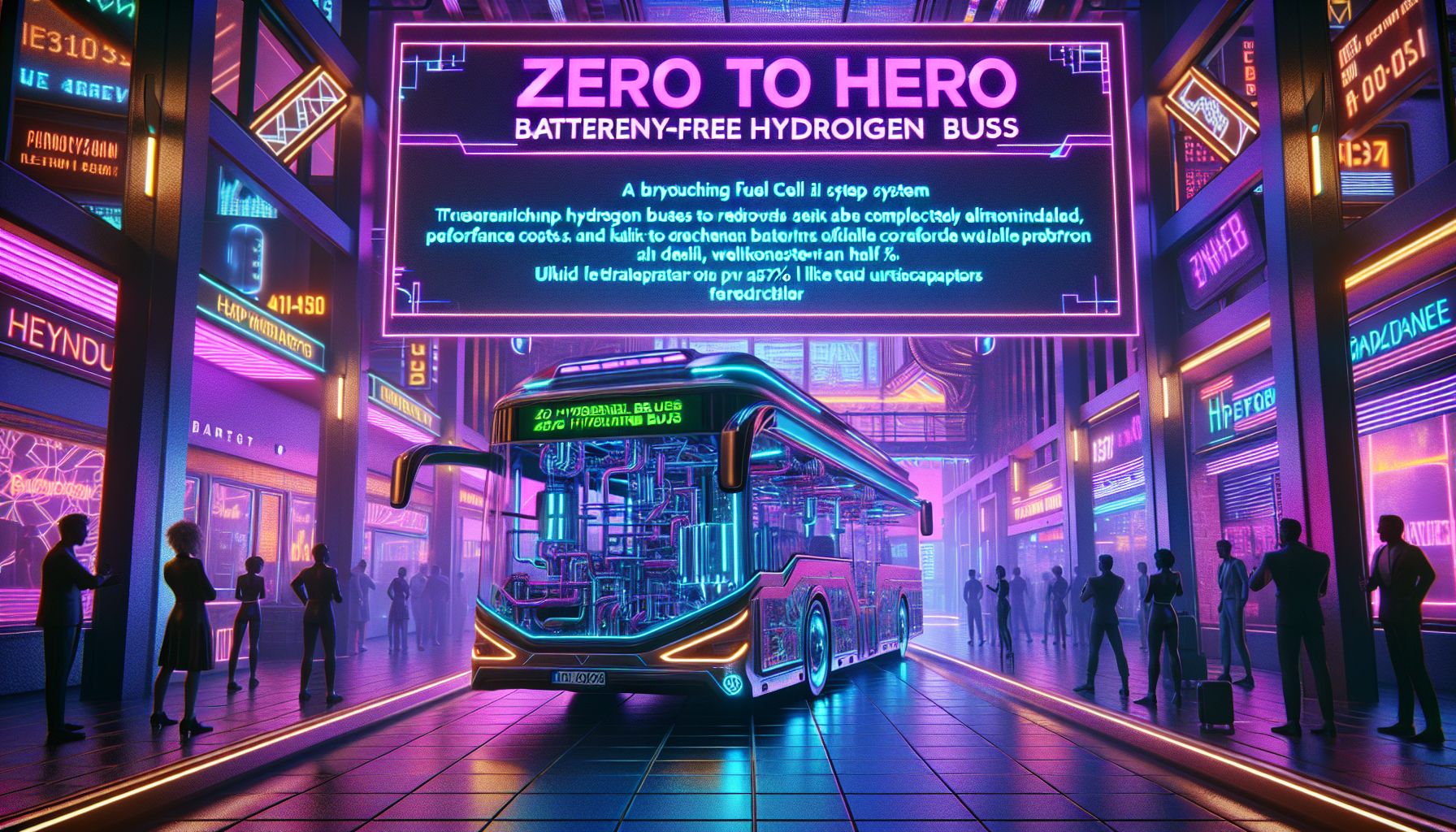Zero to Hero: Battery-Free Hydrogen Buses Set to Revolutionise Public Transit

Java, Monday, 18 November 2024.
I’m thrilled to share how a groundbreaking hydrogen fuel cell system is eliminating batteries from buses, slashing costs by 45% and weight by half. This innovation, launching today at European Hydrogen Week 2024, promises to make clean public transport not just greener, but significantly more affordable and efficient. While traditional hydrogen buses rely on heavy battery packs, this clever new system uses ultracapacitors to deliver diesel-like performance without the environmental impact.
A New Era in Public Transportation
Imagine a world where public buses glide silently through city streets, powered by a hydrogen fuel cell system that doesn’t need bulky battery packs. Sounds like science fiction? Well, it’s happening right now. This week, at the European Hydrogen Week 2024, this innovation is taking centre stage. The clever use of ultracapacitors over traditional batteries is a game-changer, offering a performance boost akin to diesel engines but without the carbon footprint[1].
Innovations Leading the Charge
The brains behind this revolutionary technology is Nimbus Power Systems, in collaboration with the Center for Transportation and the Environment (CTE). They have crafted a fuel cell system that follows the load, meaning the power output adjusts dynamically, similar to how your smartphone dims its screen to save battery. This not only cuts costs by 45% but also trims the weight by 50% compared to existing technologies[2].
Real-World Impact and Future Prospects
Now, you might wonder, how does this translate to the real world? Well, the CTE has conducted rigorous testing using data from AC Transit’s operations. The results? A seamless integration into the existing infrastructure with substantial cost savings and improved efficiency. This model is not just a prototype but a viable solution ready to roll out across Europe and beyond[3].
A Global Movement
As Europe embraces this technology, cities like Hürth and Wuppertal in Germany are already transitioning their fleets to hydrogen buses. These cities are part of a broader movement, supported by initiatives such as the JIVE 2 project, which aims to expand hydrogen-powered public transport across the continent[4].
Conclusion: A Greener Future Ahead
The shift towards battery-free hydrogen buses marks a pivotal moment in sustainable transport. It’s not just about cutting costs or improving efficiency; it’s about paving the way for a cleaner, greener future. As more cities adopt these systems, we can look forward to a world where our daily commutes contribute to a healthier planet. Now, isn’t that a ride worth taking?